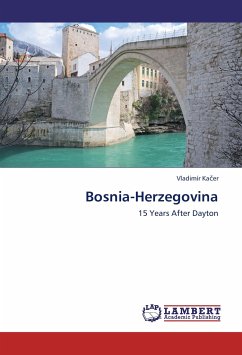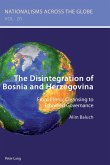Since the second half of the 1990s onwards the European Union has started comprehensive Europeanization reform process in the Western Balkan countries. One important aspect of the Europeanization process has been a democratization process. However, the Western Balkans region as a whole has faced serious democratic deficit. Therefore, it is highly puzzling to understand the main reasons behind this paradox. Thus, this book analyses the case of Bosnia and Herzegovina, one of the countries of the Western Balkans region, regarding the main challenges it has faced in terms of its democratization reforms in the framework of the Europeanization project. I have identified the five main challenges slowing down democratization in the country; namely, deficient constitutional framework, massive international presence, exclusive ethnic-nationalism, weak civil society, and ambiguous role of the EU states. Thus, Bosnia and Herzegovina has faced a situation of permanent Europeanization process without genuine democratization reforms.
Bitte wählen Sie Ihr Anliegen aus.
Rechnungen
Retourenschein anfordern
Bestellstatus
Storno








